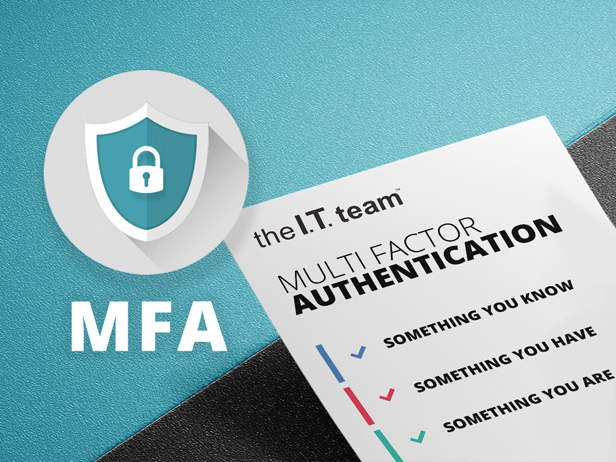In the modern digital environment, many external threats are targeting your organisation’s IT setup. Which means any additional security that can be deployed without impacting productivity is generally a good idea.
In our daily working lives, most computer users will use multiple systems and applications that require password access. This can include your email system, file storage, accounting packages, client databases and productivity software.
What is Multi-Factor Authentication?
Multi-factor authentication (MFA) is a process that combines multiple methods of logging into a system or application. Unlike single-factor authentication which is usually just a password, MFA users need to prove their identity by providing at least two pieces of evidence across three main categories: what you know, what you have and what you are.
What you know
The most common “what you know” is of course the password. This should be unique and known only to the user.
What you have
The “what you have” factor confirms you are in possession of a specific item, again unique to you. This commonly means your personal smart device, but also can include key fobs and smartcards. Authentication is via an SMS message sent to your device, or accessing a constantly regenerated code on an installed app.
What you are
“What you are” is less common, but utilises physical characteristics such as fingerprint scans, and voice or facial recognition.
If one of the factors is compromised by an unauthorised user, the chances of another factor also being compromised are low. As such, this signifanctly decreases the chances of a successful breach or attack.
The outcome of a good MFA strategy
A good MFA strategy will balance risk versus impact on your team’s productivity, and the best ones enable frictionless user experience through multiple options. They will also integrate seamlessly with existing applications that you use daily.
Given the level of costs associated with a typical breach (in both revenue and reputation), relying on passwords alone represents a huge risk. MFA mitigates this risk by providing extra authentication layers and enhances your team security considerably.
If security is important to you, the I.T. Team would love to chat about the best way to keep your team and business data safe.

